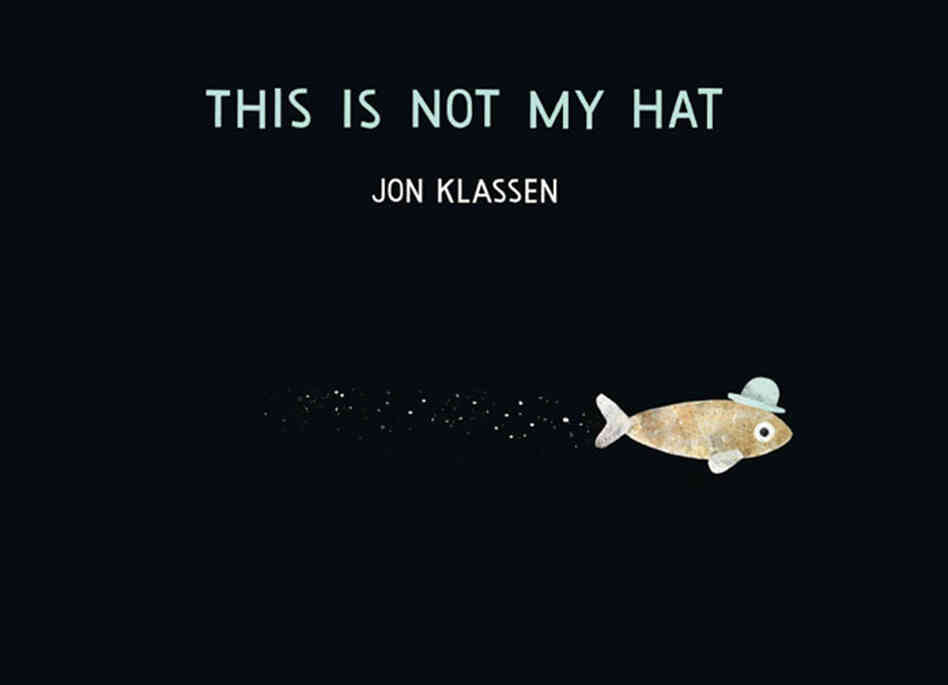What a charming little fish, with a charming little hat. Oh, and in case you didn't know. That's not his hat. Already, just from the title, the reader is left wondering who the hell that hat belongs to. This is some deep stuff. Exactly the reason why I decided to pick up the book in the first place. I just need to know. In summary, the smug little bastard up there stole the hat from a bigger fish and is going to hide out in some kelp. "How big's the fish," you might be wondering...
 |
| 2 Pages big. |
The little fish spends about 5-6 pages bragging about how awesome he is, how he'll never get caught hiding in the forest, and as far as to say that the hat didn't even fit the fish right. So it was his god given right to take the hat away from the big fish because it looked so gosh darn better on him. The innocence this little fish has is so obscure. It justifies the stealing of a hat based on how cleanly he got away with it. So we're introduced to a character that we're already rooting against. The little one states that the fish was asleep and won't wake up for a long time. Sorry to burst your bubble, but -
 |
| Gettin real tired of your shit. |
So now the reader is expecting some good 'ol fashioned butt kicking - er tail flopping. Fish violence. It's real, folks. As much as we'd like to see this all go down as soon as possible, the little fish had made a pretty good claim about how safe he'll be where "the plants are big and tall and close together." There needs to be a catalyst somewhere. Something that's really gonna tie all this future violence together. In order to do this we need to back track on the little fish's journey towards his safe haven. Particularly this scene:
 |
| I know nothing. |
The little fish ensures the reader that even though he passed that crab up there, he was promised that said crab would not tell big fish where he was going. I mean that's a pretty good point there, and it really solidifies a symbol of comradery among nautical creatures. It's a good lesson for little kids to be able to find trust in other humans at first, instead of automatically rejecting the idea outright. They'll learn when they're adults that people pretty much suck a majority of the time, and it turns out being underwater is no exception.
 |
| You fucking rat. |
By now you should already realize that the real appeal to this book are the illustrations. I mean just look at the genuine fear in that crabs eyes and the burning hell fire in the big fish's eyes. The unprecedented irony of the text that appears on this page. The contrasting colors. LEAVES. THE GOSH DARN LEAVES. This fight is going to go down and it's all thanks to Benedict Arnold over there. Though in his defense, I'd probably do the same in that situation.
So big fish has got his guns set to "kill" and as expected, little fish makes his way into the plant forest without worry.
 |
| Oh how wrong you are. |
On of the best things about this book is its openness to interpretation. Which is pretty great for any age because the ending to the novel is so open ended, that it sort of gives you the freedom to end to book yourself. I mean yea basically the big fish goes into the kelp and finds the little fish, but the last page of the book is this:
He basically gets his goddamn hat back. With that smug look on his face too. What happened in the kelp? Did he just take it? Did he eat the little fish? Did he take the hat from the little fish and it didn't notice in some weird opposite plot universe? It's really all up to the reader and really there's only one ending that I could be happy with...
 |
| This guy dies. |
ta ta kids


